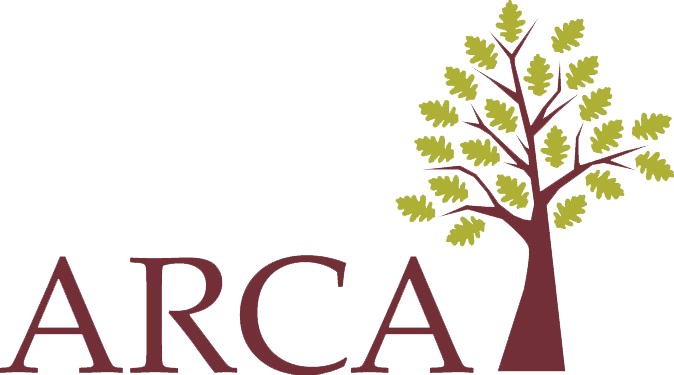THE ALLIANCE
About Us
The Lanterman Housing Alliance was founded in October 2014. We are a statewide organization that serves as a catalyst for the creation of affordable, supportive housing for Californians with intellectual and developmental disabilities (I/DD). Our members collectively have secured thousands of units reserved for this vulnerable population. LHA’s ability to bring together builders, regional centers, funders, policymakers, and other key stakeholders uniquely positions us to meet our objective to increase housing opportunities for people with I/DD.The Alliance's shared purpose is to network and communicate best practices and strategies to provide housing for people with developmental disabilities.
The name "Lanterman" refers to the Lanterman Act—a piece of California legislation that created the Regional Center system. Regional Centers are state-funded nonprofit corporations that provide case management services for people with developmental disabilities in the State of California. More information about Regional Center and the Department of Developmental Services can be found here.
Member organizations vary in size, make-up, and services. However, each maintains strong ties to the local Regional Center in their service area. These relationships empower our collective mission to create affordable housing solutions for the population we serve.
Mission, Vision, Values
Mission
The Lanterman Housing Alliance fosters innovative public policies and public-private partnerships that result in sustainable investment in affordable housing for people with developmental disabilities.
Vision
People with intellectual and developmental disabilities have access to diverse, affordable housing opportunities that fulfill the Lanterman Act’s promise of integration into the mainstream life of the community..
Values
The values of the Lanterman Housing Alliance are summarized in the seven basic ideas listed below. These ideas were outlined by the Association of Regional Center Agencies (ARCA) and the ARCA Housing Committee and informed by years of identifying and serving the needs of individuals with a developmental disability.
1. Affordable housing is not a disability issue; it is a community issue.
When there is sufficient, affordable housing, people of all ages with unique needs and vulnerabilities will have stable neighborhoods and healthy environments. A healthy and responsible community must identify a housing plan that accommodates all segments of its population, including people with disabilities. Additionally, the developmental disabilities system has a responsibility to provide local jurisdictions with appropriate information regarding that community’s developmentally disabled population; information that will facilitate a housing plan.
2. Housing options must be broad to meet the diverse needs of this population, which includes type, size, and location. Housing models should be coupled with these specific requirements.
A “one size fits all” housing model will not meet everyone’s future housing needs. Community-based living options may include apartments, townhomes and single-family residences, as well as teaching homes configured as multiplexed units. The optimum housing model should embrace the following requisites:
- The personal control of an individual with developmental disabilities; e.g., having a key to the front door.
- The appropriate size and mix of housing development for the community at large. For large multi-family affordable housing developments, (exclusive of HUD 811 projects) the set-aside portion for people with developmental disabilities should mirror population demographics, and avoid the perception of a development for persons with special needs. With that precept in mind, smaller is always better — demonstrating personal, integrated living arrangements that blend into the community.
3. Housing should not segregate people.
People with developmental disabilities should have full access to the same opportunities and services available to the public, with thoughtful consideration and planning to make this a reality. Opportunities for employment, recreation, and socialization should be readily available in the community. People with developmental disabilities should not have to leave their community to obtain access to these resources.
4. Housing must be affordable for people with developmental disabilities.
Most people with developmental disabilities receive monthly Supplemental Security Income (SSI) payments of about $900 per month as their sole source of income. Standard housing guidelines suggest that no more than 30% of one’s income should go towards rent. People living on Supplemental Security Income of $900/month, by this standard, should pay no more than $270/month for rent. It is imperative that resources must be made available to develop housing that is affordable for people living on SSI.
5. Support services should not be tied to housing.
One of the fundamental principles of the Lanterman Act is that people with developmental disabilities can choose who they live with and where they live. Support services should be selected based on individual need and delivered on an individual basis regardless of where the person lives.
6. Separate the ownership of housing from the provision of services.
Promote acquisition of housing by non-profit housing organizations serving people with developmental disabilities. The current service delivery system and the associated rates make it extremely difficult for the developmental disabilities system to purchase and retain the real assets so that they can be in continuous service.
Consequently, when residential service providers terminate the residential service, people with developmental disabilities may lose their home and the state of California loses its investment in the associated real estate. The developmental disabilities system requires a shift in public policy that invests in housing assets through the partnership of the regional centers and an associated nonprofit housing agency. This will ensure that the real estate is purchased once and permanently stays in the developmental disabilities system.
7. The principles of Universal Design and “green” building practices should be embraced.
Universal design is an approach to the design of products, services, and environments usable by as many people as possible, regardless of age, ability, or circumstance. Universal design strives to be a broad-spectrum solution that helps everyone, not just people with disabilities. Moreover, it recognizes the importance of how things look. Green building, also known as a sustainable building, is a structure that is designed, built, renovated, operated, or reused in an ecological and resource-efficient manner.
Strategies
Build our organizational capacity to provide affordable housing leadership for people with developmental disabilities.
Document the best practices and specific tools for innovative housing partnerships that can be replicated across all of California’s Regional Centers.
Propose policy options to housing advocacy organizations, the Department of Housing and Community Development and the Department of Developmental Services to increase the targeting of housing finance resources to create affordable housing developments that directly address the housing needs of people with developmental disabilities.
The Vision section above was adapted directly from the ARCA website housing section at www.arcanet.org


